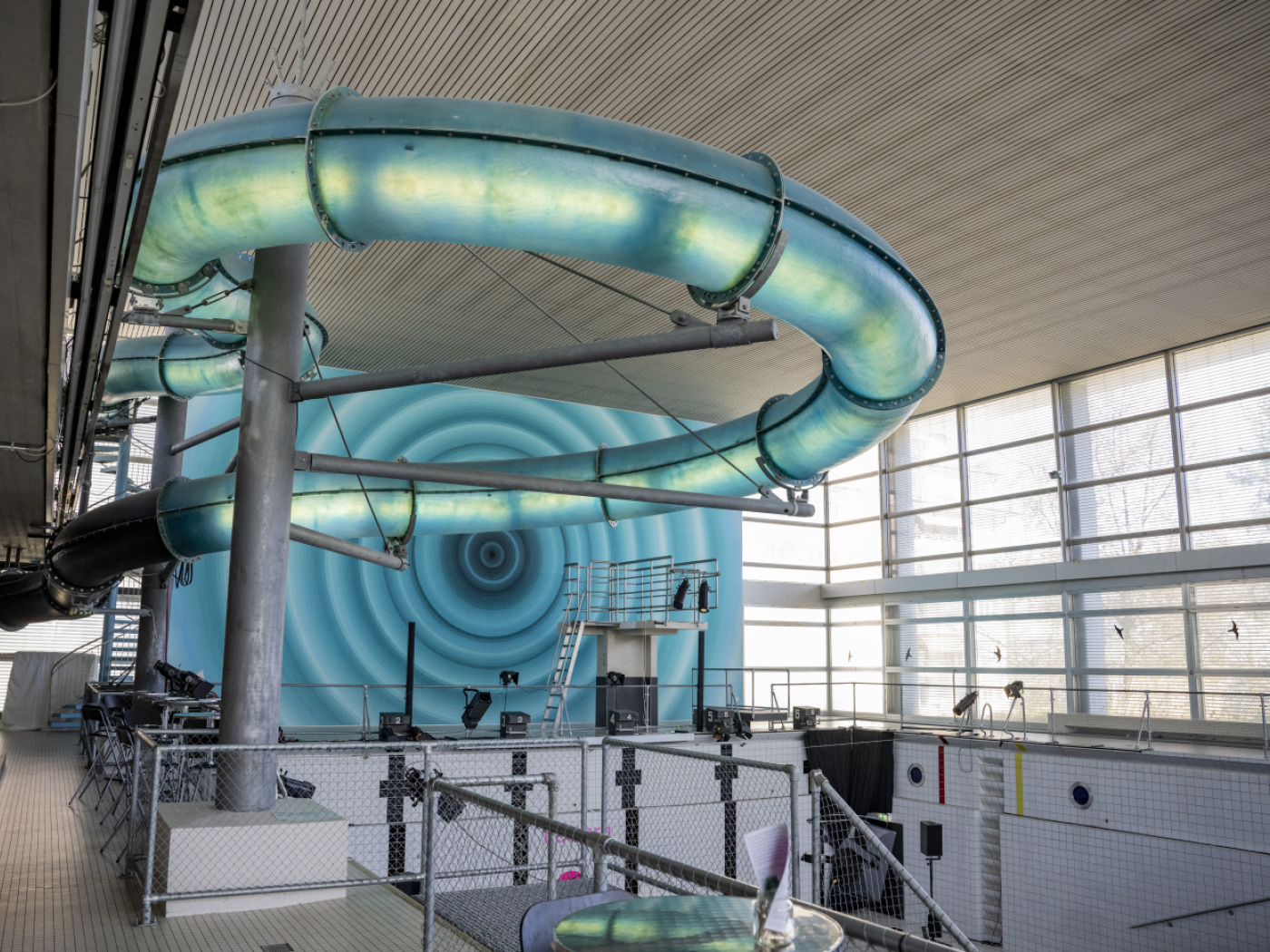
The Echolot Festival turns offices and shops into concert venues

In Lucerne, blueprints meet basslines as the Echolot Festival turns architects’ studios and tiny theatres into stages for rising musicians. The three-day celebration of sound returns for its fifth edition on October 30.
+ Get the most important news from Switzerland in your inbox
The festival opens on Thursday evening with concerts in the old crematorium at Friedental Cemetery and in the Stadtgrün greenhouse on Sedelstrasse. Both are new among the festival’s 14 venues, most of which are not typically used for concerts, a key part of the concept since the first edition in 2021. This year, the Neubad cultural centre will serve as the festival hub for the first time, making use of the club, bistro and pool of the former indoor swimming facility.
Sound spectrum
Musically, the event is focussing on diversity with around 40 artists. All of them should offer “something new” musically, “something to discover”, as communications manager Sam Aebi told the Keystone-SDA news agency. The sonic spectrum ranges from “accessible” to “experimental”.
Lucerne is represented several times with electronic artist Remo Helfenstein and the young jazz band Hypergarden. Among the crowd-pullers are German rapper Mariybu and Danish duo Snuggle, who specialise in dreamy guitar music.
Surprising experiences
Spreading the acts across the unconventional venues and providing the appropriate infrastructure there involves a great deal of effort. The organising team of around 30 people takes on this on a voluntary basis. “We want to organise an event that we would like to attend ourselves,” says Aebi. A “decentralised indoor festival” is unique for Lucerne in this form. It always provides surprising experiences, for example this year with concerts in the “CrossFit Pilatus” fitness studio.
The festival team is expecting around 1000 paying visitors over all three days, the same number as last year.
Translated from German by DeepL
We select the most relevant news for an international audience and use automatic translation tools to translate them into English. A journalist then reviews the translation for clarity and accuracy before publication.
Providing you with automatically translated news gives us the time to write more in-depth articles. The news stories we select have been written and carefully fact-checked by an external editorial team from news agencies such as Bloomberg or Keystone.
If you have any questions about how we work, write to us at english@swissinfo.ch

In compliance with the JTI standards
More: SWI swissinfo.ch certified by the Journalism Trust Initiative

























You can find an overview of ongoing debates with our journalists here . Please join us!
If you want to start a conversation about a topic raised in this article or want to report factual errors, email us at english@swissinfo.ch.